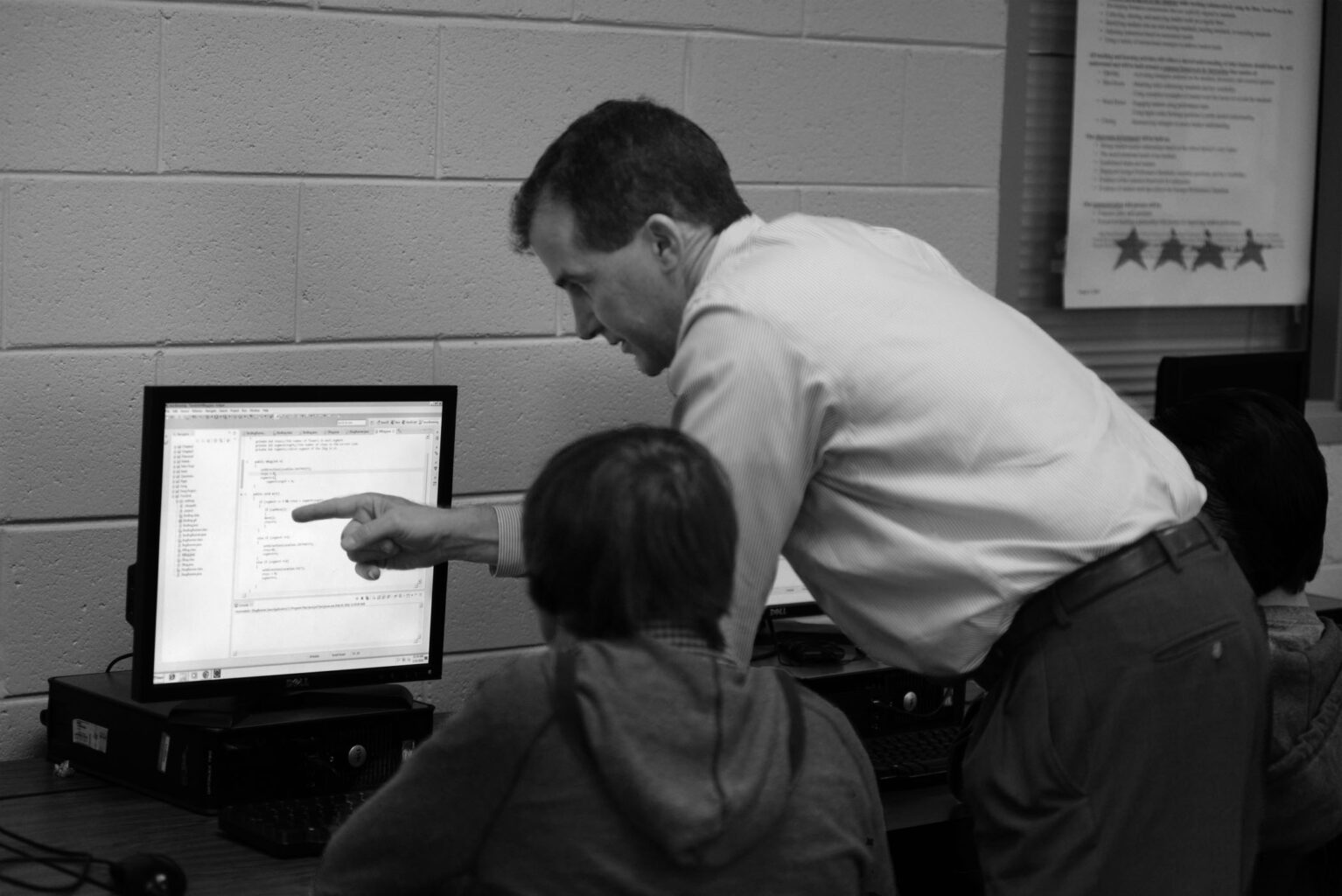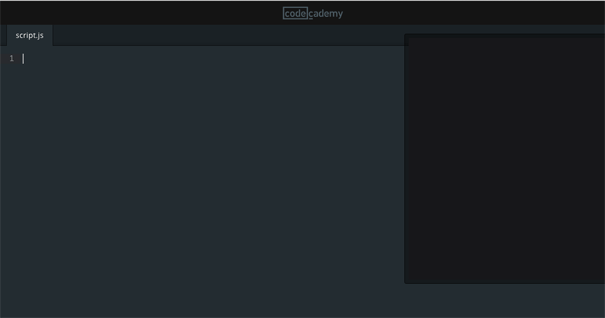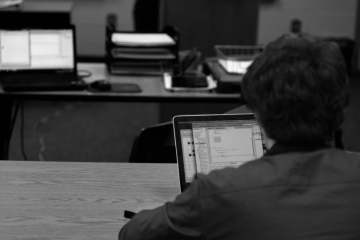By MARIA VELASQUEZ – News Writer
An initiative started by the Eve Carson Foundation encourages students to learn computer coding with the incentive of monetary rewards.
Funded by the Eve Carson Foundation, Cash for Codes encourages Clarke Central High School students to learn computer programming. The program awards monetary prizes for passing one of six approved courses on codeacademy.com.
The foundation, created in 2008, was started in memory of 2004 CCHS graduate Eve Carson. According to the University of North Carolina’s university relations page, the foundation seeks to improve student welfare in the areas of leadership, academics and social justice just as Eve did throughout her high school and college career.
“We have been searching for something new to start with the Eve Carson Foundation here in Athens, and with Andrew (Eve’s brother) having experience with coding, it seemed like a good fit,” Teresa Carson, Eve’s mother, said.
The new coding program was started by Eve’s brother and 2005 CCHS graduate Andrew Carson, and provides an incentivized student learning opportunity.
Junior Guillermo Zapata writes code during and Advanced Placement Computer Science class. Cash for Codes, a program that encourages the encryption literacy in high school students, is drawing in new members through a partnership with the Eve Carson foundation.
“Andrew is familiar with coding and it is one of the highly desirable skills for post-education work,” Advanced Placement Computer Science teacher Dr. Jon Ward said. “That coding was the initial roll-out focus.”
Monetary awards will be given to the first 40 students able to complete the courses. According to Ward, the amount of money ranges between $100 to $200 per student.
“Their primary purpose was to provide, specifically, the students of CCHS an opportunity to learn new concepts,” Ward said. “They’re starting with coding this year. Depending on how this goes, it might be something new next year.”
Cash for Codes was originally designed as a contest that would encourage students to register and complete codeacademy.com’s classes quickly. To enter the contest, a student must register on the website and then send the information to Andrew via email.
“The contest was started with the idea that high school students need money,” Teresa said. “Some may have part-time jobs, but others don’t, so this offers them the chance to earn some money and learn something new.”
Codeacademy.com is the host site for classes on learning to code JavaScript, Ruby, Python, PHP, HTML/CSS and APIs. The classes are meant to be engaging for the students and follow a set sequence.
“It’s a bit confusing at times, but they help you out and you learn new things,” sophomore Anthony Zuniga said. “I’m learning how to make an adventure game with JavaScript.”
According to Ward, codeacademy.com was chosen as the host website due to Andrew’s familiarity with the protocol. Students have found the interface accessible.
“I heard about it in the announcements last month,” junior Faith Farber said. “I think for some people it would make more sense to do (the program), but all you have to do is just follow the directions. It was really simple.”
In January, juniors Masano Conine-Nakano, Faith Farber, Stephen Gaines and Devin Middleton, sophomore Evan Newman and freshman William White were awarded prizes after completing the courses. The program remains open for registration until March 16 or until all 40 prizes have been awarded.
“With our current reliance on technology, this program has offered a great opportunity for students to learn how technology works,” Conine-Nakano said.


